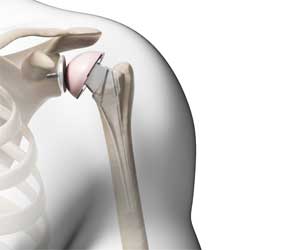- Home
- Editorial
- News
- Practice Guidelines
- Anesthesiology Guidelines
- Cancer Guidelines
- Cardiac Sciences Guidelines
- Critical Care Guidelines
- Dentistry Guidelines
- Dermatology Guidelines
- Diabetes and Endo Guidelines
- Diagnostics Guidelines
- ENT Guidelines
- Featured Practice Guidelines
- Gastroenterology Guidelines
- Geriatrics Guidelines
- Medicine Guidelines
- Nephrology Guidelines
- Neurosciences Guidelines
- Obs and Gynae Guidelines
- Ophthalmology Guidelines
- Orthopaedics Guidelines
- Paediatrics Guidelines
- Psychiatry Guidelines
- Pulmonology Guidelines
- Radiology Guidelines
- Surgery Guidelines
- Urology Guidelines
Electrochemical treatment of implant associated infections- strategy to curb antimicrobial resistance

Pittsburgh, Pennsylvania: Antimicrobial resistance is recognized as a global threat to health and healthcare systems. Because of this, most of the antibiotics are failing and antimicrobials have stopped working especially with recurring infections. In new research, published in the journal ACS Applied Materials & Interfaces, the researchers have utilized electrochemical therapy (ECT) to enhance the ability of antibiotics to eradicate the microbes, introducing a revolutionary treatment for infections that develop from metal-based implants.
Titanium makes a great choice for use in implants, from dental to joints owing to its numerous properties including its low density, high stiffness, high biomechanical strength-to-weight ratio, and corrosion resistance. However, the surface of the metal makes a perfect home for microbes accumulation (fungal growth) causing inflammation in the surrounding tissue. As a result, 5 to 10% of dental implants fail and must be removed within 10-15 years to prevent infection in the blood and other organs.
Tagbo Niepa, assistant professor of chemical and petroleum engineering at the Swanson School, University of Pittsburgh, Pittsburgh, Pennsylvania, and colleagues seeks to investigate the antifungal properties of low-level electrochemical treatments delivered using titanium electrodes against Candida albicans. Additionally, this study explores the ability of the electrochemical treatments to potentiate fluconazole, a clinically used antifungal drug.
Key findings include:
- C. albicans can be readily controlled with electrical currents/potentials, reducing the number of viable planktonic cells by 99.7% and biofilm cells by 96.0-99.99%.
- electrochemical treatment substantially enhances fluconazole killing activity. While fluconazole alone exhibits a low efficiency against the stationary phase and biofilms C. albicans cells, complete eradication corresponding to 7-log killing is achieved when the antifungal drug is provided subsequently to the electrochemical treatment.
- Further mechanistic analyses have revealed that the sequential treatment shows a complex multi-modal action, including disruption of cell wall integrity and permeability, impaired metabolic functions, and enhanced susceptibility to fluconazole while altering the biofilm structure.
"Altogether, we have developed and optimized a new therapeutic strategy to sensitize and facilitate the eradication of fluconazole-tolerant microbes from implantable materials. This work is expected to help advance the use of electrochemical approaches in the treatment of infections caused by C. albicans in both nosocomial and clinical cases," concluded the authors.
More Information: "Electrochemical Strategy for Eradicating Fluconazole-Tolerant Candida albicans using Implantable Titanium" published in the journal ACS Applied Materials & Interfaces.
DOI: https://doi.org/10.1021/acsami.9b09977
Journal Information: ACS Applied Materials & Interfaces
Provided by: University of Pittsburgh

Disclaimer: This site is primarily intended for healthcare professionals. Any content/information on this website does not replace the advice of medical and/or health professionals and should not be construed as medical/diagnostic advice/endorsement or prescription. Use of this site is subject to our terms of use, privacy policy, advertisement policy. © 2020 Minerva Medical Treatment Pvt Ltd